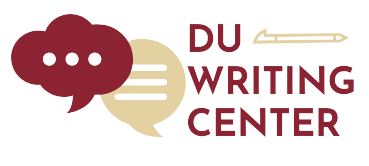Henry Xu: Navigating Bilingualism and Cultural Identity in America
By An Nguyen
This Fall we will be publishing a series of spotlight articles about multilingual students and faculty at DU. These articles are based on interviews that Dr. Kamila Kinyon and a group of multilingual students conducted about interviewees’ lived experiences, including continuing connection to heritage languages, role as writers and teachers at DU, and thoughts about multilingual and multicultural identity. This project is funded by a Faculty Research Fund Grant awarded to Dr. Kinyon for 2023-25. We welcome this opportunity to celebrate DU’s multilingual community.
In the heart of rural Trinidad, Colorado, a unique story of cultural and linguistic duality unfolds through the life of Henry Xu. Born to Chinese immigrants from Fujian, Henry’s upbringing was a blend of English and Chinese, a linguistic duality that shaped his identity. Currently a junior at our DU community, Henry is double majoring in Biology and Language, Literature, and Culture on a pre-dental track and minoring in Chemistry and Business Administration. Henry’s journey is a testament to the complexities of growing up in a bicultural household in America. His plan is to get into dental school. His favorite hobbies are hiking, cooking, listening to music, and learning car mechanics. His story, one of many that the Multilingual Project aims to highlight, showcases the diverse experiences of individuals who navigate multiple languages and cultures daily.
Henry’s upbringing was steeped in both English and Chinese, but his dominant language daily is English – he only speaks Chinese at home. In addition, he speaks multiple dialects, including Hokkien and Fuzhou dialect. This linguistic duality shaped his identity, allowing him to connect with his family, especially his heritage, while also being a part of the American future. In my conversation, I learned that he holds great significance within his culture. “It’s really special,” Henry reflects on learning Chinese from his mother and grandmother. With its intricate tones and characters, the Chinese language posed a challenge for Henry, especially when he was younger. “I was forced to learn,” he recalls, “it was hard, but I learned a lot through schooling from my mother.” This rigorous education in both Chinese and Chinese dialect not only equipped him with language skills but also deepened his understanding of Chinese culture and traditions.
Henry’s fluency in Chinese, English, and various dialects has opened doors for him and might brighten his near future, both personally and professionally. He often finds himself translating for his family in various settings, including medical appointments. His aspirations to his secondary major in Language, Literature, and Culture and to pursue a career that bridges linguistic gaps is a testament to his confidence and determination. Despite the challenges he faced, Henry’s journey is a story of resilience and triumph. The supportive environment he found in college, rich with diversity, allowed him to connect with others who share his identical background.
Henry’s academic pursuits in STEM, particularly in biology and pre-dental track, have been enriched by his ability to switch between languages. He often turns to Chinese translations to grasp complex concepts, a strategy that underscores the practical benefits of multilingualism in education. The university’s support for multilingual students, including accommodations and fostering diversity, has been instrumental in Henry’s academic success. With what Henry has witnessed and experienced at DU, his advice for other students, particularly those interested in becoming multilingual, is to embrace their cultural backgrounds and learn their native languages.
Henry Xu’s story is a powerful reminder of the richness that multilingualism brings to individuals and communities. As part of the Multilingual Project, his narrative contributes to a broader conversation about the importance of recognizing and celebrating linguistic diversity in America. Through his experiences, Henry encourages us all to explore the languages and cultures that make us who we are, fostering a more inclusive and understanding society. His journey is a beacon of hope, inspiring us to embrace our linguistic diversity and celebrate it.

